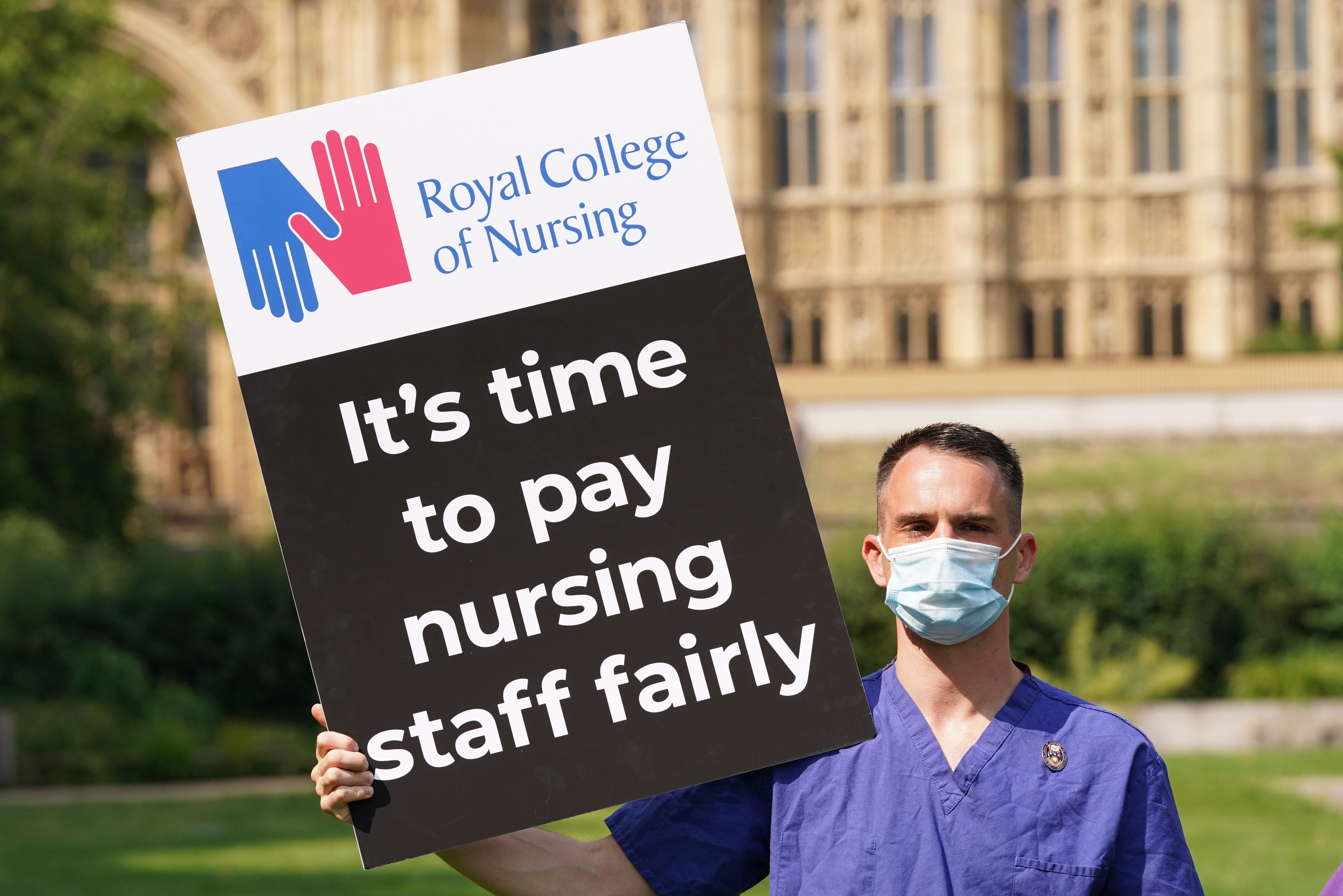We should strike to save the NHS – it’s the only way to head off an exodus
Industrial action would dominate the news cycle, keep the issue of poor pay and conditions squarely in the public eye, and emphasise the government’s contempt for the service – it might be the best option for all


Most Britons care deeply about the NHS. It is one of those rare things still capable of uniting this divided kingdom’s disparate tribes. But if you’re among their number, you need to understand something: It may take a strike to save it.
You may have guessed by now that I’m going to discuss the government’s miserable 3 per cent NHS pay award. Ministers have been trying to portray this as somehow generous on their part, because it’s an improvement over the initial offer of 1 per cent – and is better than the kick-in-the-teeth pay freeze the rest of the public sector has had delivered to it by the cabinet.
But in reality, all it amounts to is putting half a cup of rice in the hands of a starving man. To try and pretend it is otherwise strains credibility to breaking point. That 3 per cent is barely even a rise when you consider the way inflation has been surging. The Bank of England expects price rises to peak at something above 3 per cent. Andy Haldane, its outgoing chief economist, thinks it could approach 4 per cent by the end of the year.
It doesn’t require some pointy-headed don to reach into his bag of analogies to make the economics of this understandable, to explain what those numbers mean. It doesn’t even take a middling GSCE in maths. Come September, when the money will finally arrive in the pay packets of NHS workers, this “rise” will amount to a pay cut in real terms.
The people who on Thursday nights took to their doorsteps to clap their hands, and bang their drums, mostly understand that while applause is nice, it doesn’t cut it for people who risked their lives – sometimes without adequate protective equipment. They deserve to be rewarded for doing so – and the public wants to reward them. The pay cut the government is proposing therefore flips the bird to all of us.
Ministers are on the wrong side of this one, just as they were when England’s football players took the knee to protest racism and Boris Johnson initially refused to condemn the racist boo boys.
Industrial action is always contentious, subject to the sort of spin that descends into outright lies when it comes from government spokespeople, because it has the capacity to hurt the public.
That spin may not work if NHS workers chose to push the button, and there are many options for the 14 healthcare unions. They mightn’t need to strike. They could simply decide to operate an overtime ban. They could just choose to withdraw goodwill. The service runs on that, on hours upon hours of unpaid overtime put in by dedicated staff. But the reservoir has been drained dry by the contempt of our political masters.
The real danger, however, is that NHS workers opt for another route, one that doesn’t require unions to hold votes, or to issue press releases brimming with justified anger, or to organise picket lines and demonstrations. The service’s workers could simply follow the example of Jenny McGee, the nurse who kept vigil by the prime minister’s bedside while he was in intensive care with Covid. She quit when the government was proposing 1 per cent.
Long term, this form of industrial action poses a clear and present danger to the future of the NHS. When I spoke to Unison, one of the biggest health unions, on this subject, I was reminded that there were 100,000 vacancies before Covid landed.
The pandemic, and the national crisis it provoked, drew back thousands of people who had retired and/or left. There were keen to do their bit. They are the sort of experienced “old hands” the government should be trying to retain. After this, why would they stick around? Why would their colleagues?
Some of them may opt for agency work, which pays better. Some may try their hands overseas, where there is always demand and the points-based immigration systems the government is so fond of put them at the front of the queue. Some, after having worked punishing hours tending to the dying, may simply decide they can’t take anymore and opt for a career change.
This bodes ill for the future of a service that has a huge backlog of procedures to overcome, and is starting to see a renewed rise in hospitalisations as a consequence of the government’s recklessness in the face of the pandemic’s third wave.
If the scenario that I fear plays out, NHS managers may find themselves losing a war of attrition, constantly rearranging deckchairs as the human resources on which they rely evaporate in the scorching summer sun.
This explains why industrial action, which would dominate the news cycle, keep the issue of poor pay and conditions squarely in the public eye, and emphasise the government’s contempt for the service, might be the best option for all of us. It may be the only way to force ministers’ hands and head off an exodus.
Strike to save the NHS. It’s not a great slogan, but we’ve seen worse and it contains more than a grain of truth.
Join our commenting forum
Join thought-provoking conversations, follow other Independent readers and see their replies
Comments